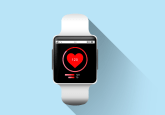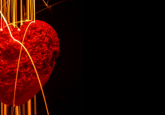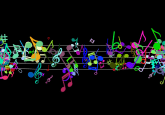Novel AI system can diagnose autism in children with 98.5% accuracy

Researchers from the Radiological Society of North America (IL, USA) have developed an AI system capable of diagnosing autism in children aged 24 to 48 months with a 98.5% accuracy rate.
According to the 2023 Community Report on Autism by the Centers for Disease Control and Prevention (GA, USA), less than 50% of children diagnosed with autism spectrum disorder underwent a developmental evaluation by the age of three. Additionally, 30% of children meeting the criteria for autism spectrum disorder did not receive an official diagnosis by the age of eight.
These delays in diagnosis and developmental evaluation can be attributed to various factors, one of which is limited capacity at testing centers. To address this issue and potentially reduce the time and expenses associated with assessment and treatment, researchers have developed an AI system that can detect autism using diffusion tensor MRI (DT-MRI) brain scans.
DT-MRI is a specialized form of MRI that measures the diffusion of water molecules in biological tissues, providing information about the microstructural organization of tissues, particularly in the brain’s white matter.
“Autism is primarily a disease of improper connections within the brain,” said co-author Gregory Barnes, professor of neurology and director of the Norton Children’s Autism Center (KY, USA). “DT-MRI captures these abnormal connections that lead to the symptoms that children with autism often have, such as impaired social communication and repetitive behaviors.”
The researchers developed a three-stage system to analyze and classify these DT-MRI scans. First, they used a software library (FSL) to isolate brain tissue images from the scans. Second, they extracted imaging markers indicating connectivity levels between different brain regions using the John Hopkins White Matter Atlas. Finally, a machine learning algorithm compared these marker patterns in the brains of children with autism to those of neurotypical children.
The researchers employed their approach on brain scans of 226 children aged 24 to 48 months. Within the dataset, 126 children had autism, while 100 were neurotypical. The results revealed that the technology exhibited high performance, with 97% sensitivity, 98% specificity and an overall accuracy of 98.5% in correctly identifying children with autism.
In addition to identifying autism, the AI system generates a report specifying which neural pathways are affected, the anticipated impact on brain functionality and assigns a severity grade, which can be used to guide early therapeutic intervention.
The research is set to be presented at the annual meeting of the Radiological Society of North America (RSNA; 26–30 November 2023, IL, USA) and the researchers are currently working toward commercializing and obtaining FDA clearance for their AI software.





